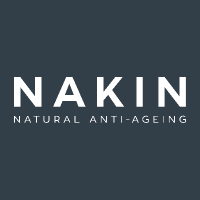Does Stress Affect Our Looks?

Has your skin or hair had some bad patches, when you wonder what could have caused it? Or have you ever thought that you are putting on weight, but you are not eating more, or exercising less. It can be hormonal, related to our menstrual cycle or the menopause, or it can be to do with stress and or cortisol levels. Read on to find out how stress effects our looks, and what we can do to overcome this.
The reason that stress causes issues for our body is because the mind and body are intricately linked. So high levels of stress neurologically is very inflammatory for our systems in many different ways. It can cause skin breakouts, or dryness on the skin and scalp, plus it can cause a storage of fat around the centre of our body. The reason that we have this fat storage is because our ancestors were stressed when food was in short supply, and so stress allows our body to store fat that can be essential to our survival. It is amazing really, but not so welcome nowadays when food is in abundance for many. The trick to managing and alleviating the effects of stress is to make things easier and to be kind to ourselves.
Using high quality natural face products like ours at Nakin will help our skin to look as good as it can, but living a less stressful life will also help our skin in so many ways. Stress can manifest in various ways on our skin, often exacerbating pre-existing conditions or triggering new issues. When we're stressed, our body releases hormones such as cortisol, which can lead to increased oil production and result in acne or breakouts. Chronic stress can also weaken the skin's barrier, making it more susceptible to irritation, redness, and conditions like eczema and psoriasis. Moreover, stress can accelerate the ageing process of the skin, contributing to the formation of fine lines, wrinkles, and a dull complexion. Ensuring proper stress management and skincare routines is essential to maintaining healthy and resilient skin amidst life's challenges.
If stress is a big part of our lives, then putting things into perspective can help. If we have put on a few pounds, it is not that much and probably not even noticeable to others. Do not be hard on ourselves about imperfections. If you have too many things on each day, then try to slow it down and think about what you can leave out of your life for the time being, what are the non-essentials? We can easily spend a lot of time looking after others and forgetting that we will benefit from some self care and relaxation. It might be something simple like going easy on yourself with exercise, such as taking a long walk instead of a fast-paced aggressive run, or other high intensity work outs. Or taking up yoga, which is amazing for stress and can help to reset your whole system and balance the body, including the digestive system.
One way to overcome stress is to be kinder to ourselves. Do not be hard on yourself and treat yourself well with some selfcare time, plus doing things that you love. Stress is also thought to come from inaction, where we put off important tasks and by not completing them, it contributes to our stress levels. So tackle this by taking action on the things that are troubling us the most. Even a small step to accomplishing a task will make us feel better, and once we start we might find that things are not as bad as they seemed to be. Having lots of things to do can also be stressful for us, so tackle this by working through each of the tasks one at a time.
Sleep is essential to keeping ourselves happy and healthy, plus a good nights sleep means that we will have the energy we need to complete our tasks. Sleep plays a pivotal role in reducing stress and maintaining overall well-being. During sleep, the body undergoes various restorative processes, including the production of growth hormones and the repair of tissues, which collectively alleviate physical stress. Additionally, adequate sleep allows the brain to process and organise information from the day, leading to improved cognitive function and emotional regulation. The lower levels of the stress hormone cortisol during sleep provide a calming effect, which helps to combat the symptoms of stress and anxiety. By ensuring sufficient and quality rest, individuals can significantly enhance their ability to cope with daily stressors and maintain a balanced, healthy lifestyle.
To help your skin with dryness or breakouts then skincare can really help, such as our natural skincare which contains lots of gorgeous boosting and moisturising face products. It can make you feel good to have some pampering time and your skin will be healthy and glowing.
Massage is a great way to relax and can even be carried out yourself, as touch induces the bonding hormone rather than stress hormones. Something like dry skin brushing is perfect for some time out and easy to do at home. Carrying out beauty and relaxing rituals is always going to help to destress. Take some time to do all of the calming and fun things you enjoy, to totally relax and build your mojo.
We should also congratulate ourselves on the good things that we have done, it is so easy to focus on the negative side of things. It might help to flip it on its head and be thankful for the things we do have. We might be stressed at work, but we are also lucky to have a job. Practising gratitude every day helps us to see things in a different light. It could be something small like being grateful for having a good sleep, or bigger things like having a home and being in good health.
We hope that you found our feature on how stress effects our looks to be helpful. To find out more about Nakin and our anti-ageing skincare then take a look at our website. All our products are suitable for sensitive skin and cruelty free. The range contains everything needed for a beautifying face care routine, for relaxed stress-free skin and is made in the UK.


Leave a comment